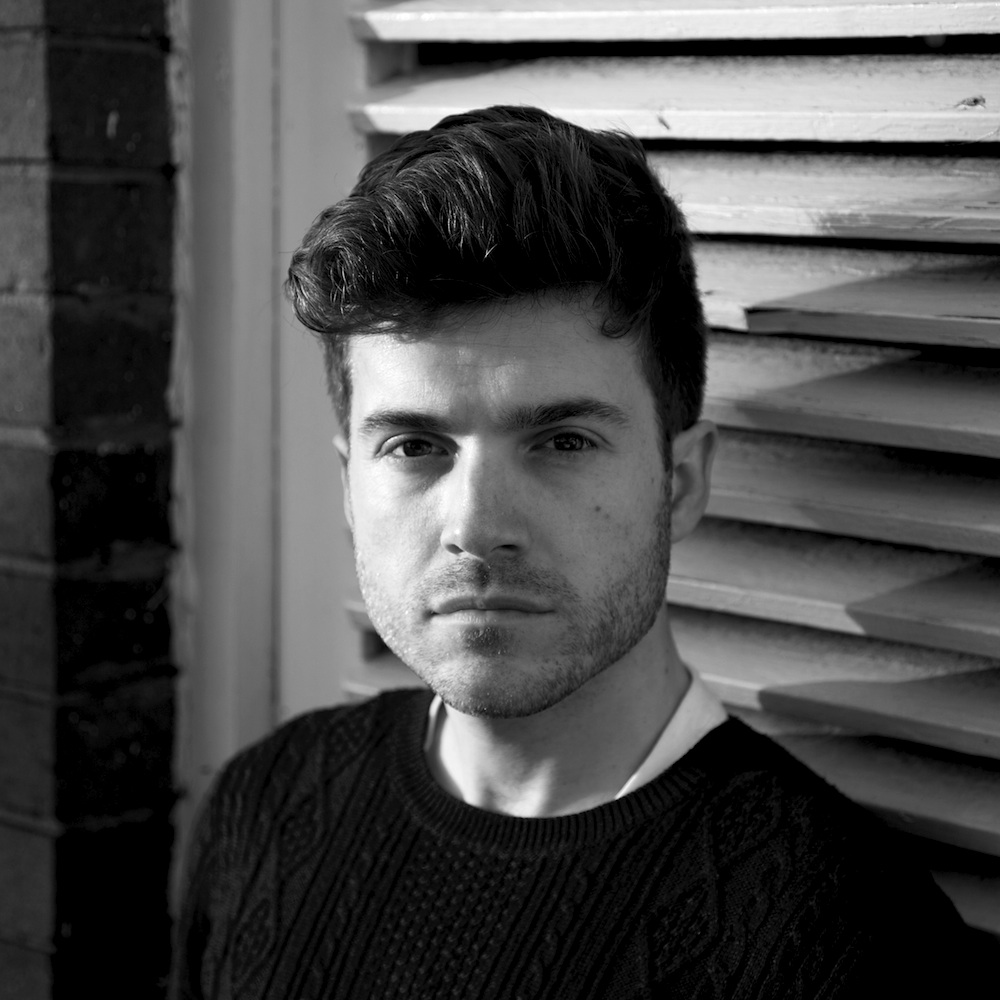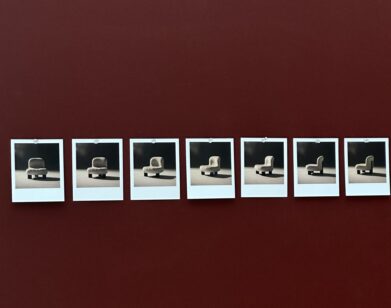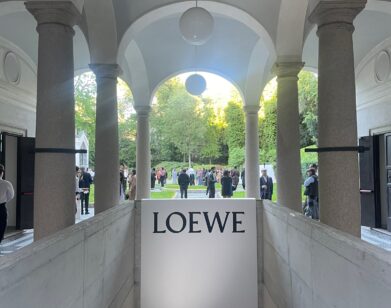Benjamin Wood’s Island in the Sun

ABOVE: BENJAMIN WOOD. PHOTO COURTESY OF NICHOLAS WOOD.
“Breathtaking” is a weighty word to describe a novel, but Benjamin Wood’s The Ecliptic merits such an adjective. Out this week via Penguin Press, Wood’s second novel follows gifted Scottish artist Elspeth Conroy and her rise to fame in the London art world of the 1960s, before emotional trauma leads her to seek refuge in an artists’ colony on a mysterious Mediterranean island Portmantle.
Now 35, Wood teaches in London and won a slew of awards for his 2012 debut The Bellwether Revivals. There is no doubt that the Liverpool-native possesses a vivid imagination, but it is his exploration into the catacombs and crevasses—the self-doubt and neurosis of an artist’s mind—that makes the novel so captivating. After a series of labyrinth-like twists, turns, and dead ends, there is nothing left to do but surrender to the story.
JEFF VASISHTA: How did you conjure up such a vivid world, from the London art scene in the 1960s to the Turkish islands and Portmantle?
BENJAMIN WOOD: I’d like to say that it happened one freewheeling sentence at a time, but nope, I had to tweeze every tiny fragment of it from my brain with a blunt, ungainly instrument and then figure out how best to put it all together. The Portmantle sections were slightly easier to construct because I had spent some time in the field, as it were—I lived in Istanbul for three months as writer-in-residence for the British Council. While there, I made sure I walked every inch of Heybeliada, the island where Portmantle is situated in the novel, taking notes, photos, videos, essentially projecting my imagination onto the landscape. This is my favorite thing to do as novelist, to take reality and stylize it, heighten it, build new things inside the confines of what is there. It was tougher with the London sections in the 1960s, because I had no first hand experience at all—only a good understanding of the city as it is today. So I had to rely on projecting my imagination onto old photographs and second-hand accounts instead.
VASISHTA: Elspeth is the quintessential unreliable narrator. How much research went into her psychological condition?
WOOD: Plenty, but I tried not to let it show. It was only important to me that she was a deep-thinking and complicated. Her anxiety depression doesn’t define her any more than being a female Scottish painter defines her. And, to my mind, no first person narrator in fiction is ever reliable. As Elspeth says in the novel, “Who could ever dispute what you have seen with your own eyes?” There is always some discrepancy between the truth and a person’s account of the truth, whether it’s a massive difference or a very slight one. I guess it comes down to how much you feel a narrator is willfully occluding or manipulating your view of events. Elspeth is never disingenuous, I hope.
VASISHTA: Your knowledge of art and how to make paints from nature is impressive. Did you have to devour stacks of art books to write with such authority?
WOOD: I did and I didn’t. There’s always a point with a novel, before I put any words down on the page, that I invest in a period of reading. I need to make sure I have a good enough foundation of knowledge to build the story upon, or I find those gaps of understanding show through and hinder me from the get-go. Concrete information tends to feed my imagination best. I have about three shelves’ worth of books that influenced The Ecliptic, most of which are biographies of creative people who interested me and whose experiences I thought I could expand into made-up situations. But I also took a highlighter pen to a lot of dry reference books on color theory, light theory, painting materials and techniques, jotting down any points of interest in my notebook. Then I let my memory sieve out the valuable information over time, allowing my intuition to take over. Background reading is the fiction writer’s version of what movie actors do on ride-alongs with precinct cops—you can absorb a lot of useful insights, but it only gets you halfway to a good performance.
VASISHTA: Is there actually a mushroom or plant that glows blue in the dark?
WOOD: Well, I’m no mushroom specialist or anything, but yes! There are many varieties of bioluminescent fungi, the coolest of them being Panellus stipticus, a.k.a. the bitter oyster. There’s “foxfire,” too, which is a fungal bioluminescence you see on rotten wood. The glowing mushrooms that feature in the novel are a composite of these two, I suppose. I’ve extrapolated from the limits of what’s possible in the world we know, as I tend to in most of my writing. There’s a scene in Huckleberry Finn where Huck and Tom Sawyer dig a tunnel under the light of foxfire—I embedded a tiny reference to this into the fabric of The Ecliptic. There’s lot of embedded stuff like that in the book, in fact.
VASISHTA: What made you decide to make Elspeth Scottish?
WOOD: Her voice just presented itself to me that way. It came to me quite fully formed, actually, and I felt as though I knew her right from the offset. I did think about making her from Liverpool instead, but I didn’t want my own upbringing to bleed into hers. So I raised her in Clydebank, near Glasgow. It was important to me to write from the perspective of a female artist, from a working class background, born in a city of industry, where other things would’ve been expected of her than making paintings for a living. I didn’t want her to have emerged from privilege, or to have been raised anywhere close to London, the epicenter of the British art world—that would’ve made things too easy for her, and lessened the scale of her achievements somehow.
VASISHTA: The novel is as much a psychological thriller, I think, as it is literary fiction. There were points towards the end of the novel when I didn’t know which character I could trust. Jim Culvers tied me in knots. Did you try different endings to this when plotting it?
WOOD: I was always committed to the ending, daunting as it was to execute. It was important to me that the atmosphere of Portmantle shifted a little in each scene, made the reader feel slightly more and more uneasy. So it’s gratifying to know you had a wariness about the characters and their agendas as it unfolded. There was a point where I nearly pulled the rip cord on the ending as I was about to write it, thinking I’d parachute the whole thing down to safer ground, but I’m glad I didn’t. I’m stubborn that way.
VASISHTA: There a certain kind of humor that Liverpudlians are associated with. A certain down to earthiness. Being from Liverpool do you feel you have some of that? Some of the conversations between the artists at Portmantle are quite funny. It has almost a British prison of war camaraderie.
WOOD: Oh, definitely. There is a backs-to-the-wall sensibility to Liverpool humor that will never leave my bloodstream, because I grew up with it. I always wanted to be as funny as my Uncle Neil—he was the benchmark of wit in my family—and there’s a quickfire invention to Merseyside humor that, when you’re around it, sharpens your mind. You’re always reaching for a joke to deflect away from something serious or solemn. I think this often pervades my writing.
VASISHTA: Was there a point in school when you realized that you had a gift for fiction, and how was that encouraged?
WOOD: All writers are beneficiaries of inspiring teachers, aren’t they? I had a wonderful English teacher named Mrs. Seddon in secondary school, who always set creative writing tasks for homework, and I think she must’ve recognized some spark of ability in me when I was 12 or so—she certainly went out of her way to encourage me with her grades and feedback in class. But I think I realized that I could write fiction convincingly some time after that, while at sixth form college, when I was given a writing assignment by a lackluster teacher I really detested. He loved to brag to us about his PhD in literature from Cambridge and yet stultified the living goodness out of all the books he put on the reading list. Anyway, the piece I submitted to him—a dramatic monologue—was given a zero mark, because he was convinced I’d plagiarized the entire thing from a published collection, or paid someone to write it for me—he didn’t say who. I told him where he could shove his PhD in literature, and I quit the college soon after.
THE ECLIPTIC IS OUT NOW.






